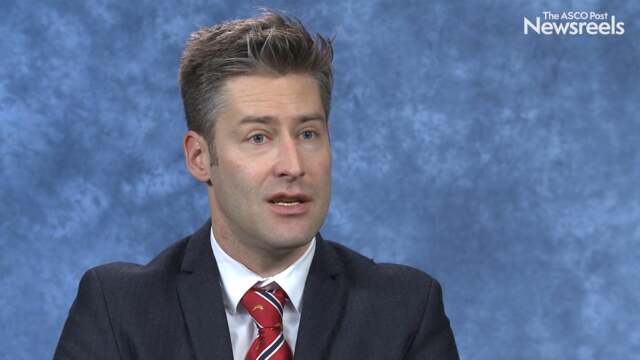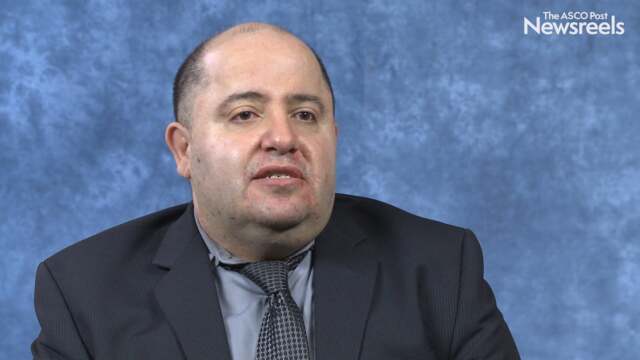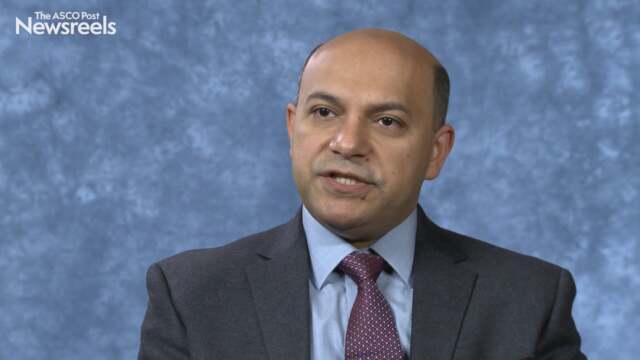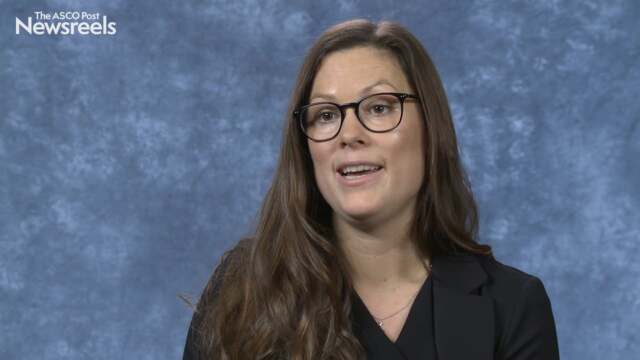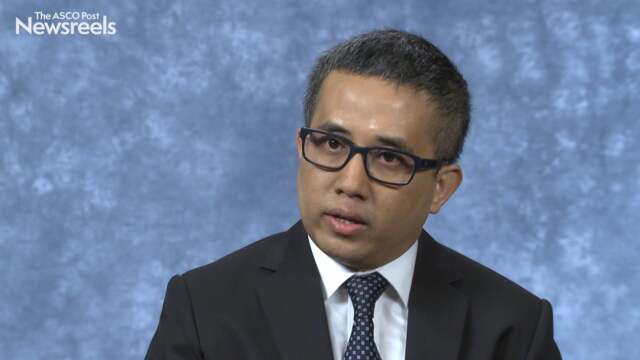Thierry André, MD, and Michael J. Overman, MD, on Colorectal Cancer: Results From Two CheckMate-142 Trials
2018 Gastrointestinal Cancers Symposium
Thierry André, MD, of Hôpital Saint-Antoine, and Michael J. Overman, MD, of The University of Texas MD Anderson Cancer Center, discuss findings from their respective CheckMate-142 studies on nivolumab and ipilimumab in patients with DNA mismatch repair–deficient/microsatellite instability–high metastatic colorectal cancer (Abstracts 553, 554).
Pieter van der Sluis, MD, PhD, of the University Medical Center Utrecht, discusses study findings that compared robot-assisted minimally invasive thoracolaparoscopic esophagectomy vs open transthoracic esophagectomy for resectable esophageal cancer (Abstract 6).
Khaldoun Almhanna, MD, MPH, of the H. Lee Moffitt Cancer Center, discusses the long-term outcome of a phase III study that explored the significance of extensive intraoperative peritoneal lavage in addition to standard treatment for ≥ T3 resectable gastric cancer (Abstract 1).
Basem Azab, MD, of the Sylvester Comprehensive Cancer Center, University of Miami, discusses the impact on overall survival when more than 2 months elapse between finishing neoadjuvant therapy and undergoing esophagectomy (Abstract 2).
Maria Svensson, MD, PhD Candidate, of Lund University, discusses high expression of PD-1 and PD-L1 in chemotherapy-naive esophageal and gastric adenocarcinomas, the implications for survival, and the link to a deficiency in mismatched repair genes (Abstract 9).
Kyaw L. Aung, MBBS, PhD, of Princess Margaret Cancer Centre, discusses early study findings on genomics-driven precision medicine for advanced pancreatic ductal carcinoma (Abstract 211).
